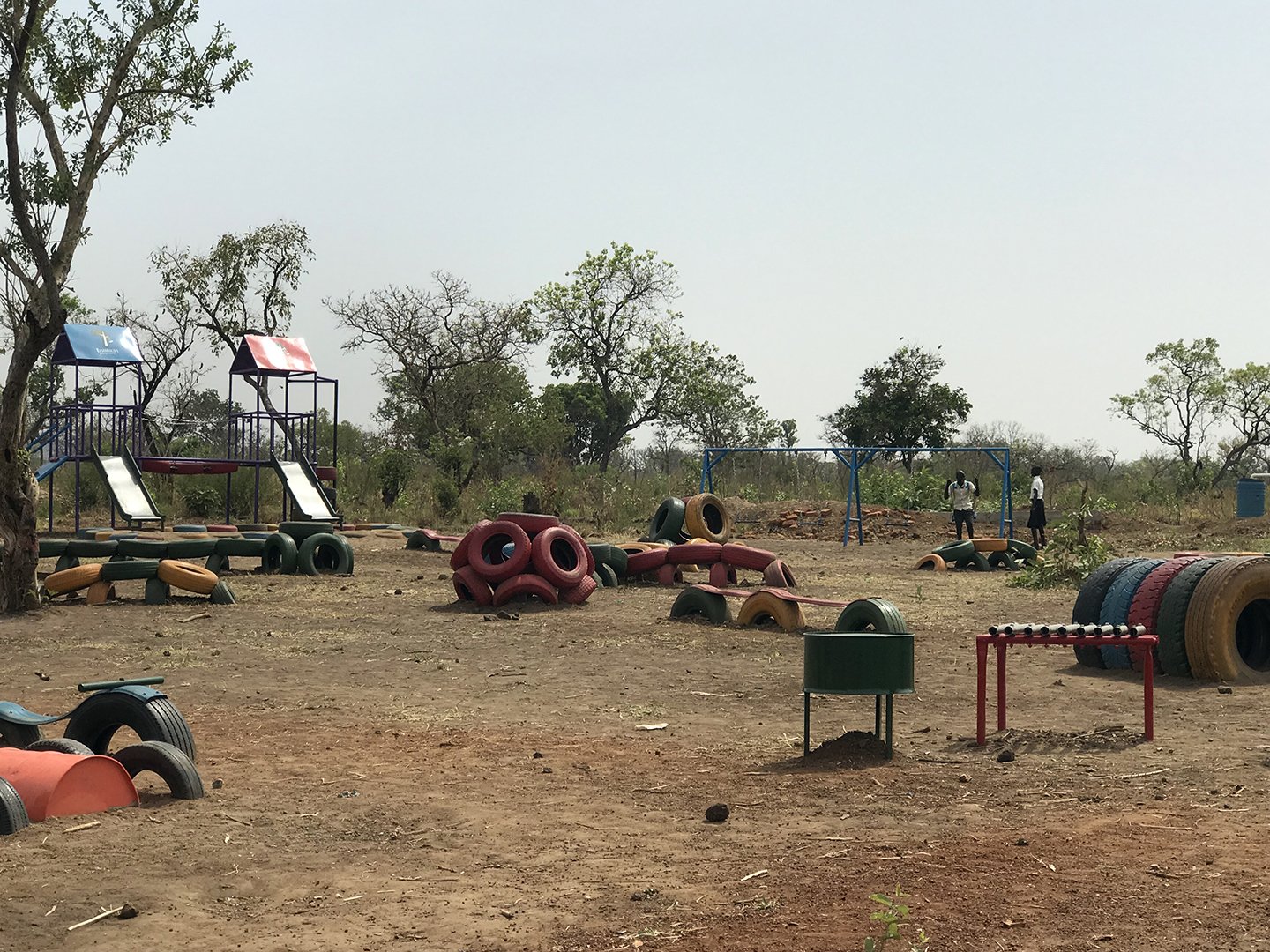Education and Psychosocial Support in Forced Migration Contexts
Ubumwe: Exploring Arts for Education and Psychosocial Support with Refugee Children and Youth
Kyangwali Refugee Settlement, Uganda
2023-present
Ubumwe, a Kinyabwisha term meaning “unity,” integrates the arts in education and community spaces in refugee settings to bolster psychosocial and educational outcomes, and examines their contributions to making communities safer and healthier for children and young people. Building on an earlier pilot during which we tested the proof of concept for this approach, Ubumwe 2.0 reimagines how schools can meet the needs of children whose lives have been disrupted by forced migration.
This project is situated in the Kyangwali refugee settlement in southwestern Uganda, home to over 135,000 refugees coming from the Democratic Republic of Congo, Burundi, Rwanda, and South Sudan. Our diverse project team works together to further develop and expand the arts curriculum for children in primary school (grades 3-6), collaborating closely with national Ugandan authorities responsible for curriculum development. Teachers and school leaders working in the refugee settlement participate in teacher professional development on art education and psychosocial support, led by local teaching artists and mental health practitioners. We also carry out complementary monitoring, evaluation, and research to help us understand the impact of the arts and to advocate for broader integration of the arts into school programming for refugee and community children.
Ubumwe benefits from a dynamic, multi-agency, and interdisciplinary team centered around refugee-led and national organizations that are embedded in and/or connected to Kyangwali refugee settlement, including: Africhild, Arts Ignite, Artolution, CPC Learning Network at the Mailman School of Public Health, HAF Uganda, and Teachers College’s Center for African Education.
Teacher Compensation in Emergency Contexts - Study 2
South Sudan
May-September 2024
This qualitative case study examined the adequacy, effectiveness, and sustainability of teacher compensation amidst the unique challenges posed by emergency situations and other context-specific challenges in South Sudan. The study included interviews with different profiles of teachers and key informants from donor agencies, government ministries, UN agencies, and NGOs operating in South Sudan.
Building Resilience in Crises through Education
South Sudan and Uganda
2018-2022
This mixed-methods, multi-site, cross-border, and longitudinal research study focused on two key interventions—the accelerated education (AE) program and teacher education and professional development (TEPD) activities. The study examined the most salient aspects of well-being for teachers and learners, how program interventions (specifically AE and TEPD) contributed to student and teacher well-being, and how teacher well-being and student well-being interact with one another and with the broader community. In response to the COVID-19 pandemic, and prolonged disruptions to both schooling and project activities, the study also explored how the global health crisis influenced AE teachers' professional and personal experiences, as well as their observations and perceptions of the effect of the pandemic on their learners. The overall initiative was led by Oxfam Denmark and included multiple partners: Associazione Volontari per Il Servizio Internationale (AVSI), Community Development Initiative (CDI), Education International, Forum for African Women Educationalists (FAWE), Luigi Giussani Institute of Higher Education, Oxfam South Sudan, Uganda National Teachers’ Union (UNATU).
Educational Policies and Schooling Practices for Urban Refugees
Ecuador, Kenya, Lebanon
2015-2017
This global mixed-methods study examined the gap between policy and practice when it comes to ensuring access of displaced children to educational and support services in urban settings. The report recommended that refugee students be fully integrated and included in national schools, and that civil organizations supported non-formal education programs to address the distinct needs of refugee students not met by government schools.
Education for Resettled Refugees & Asylees
New York City
2015-2016
This qualitative and multi-modal study examined the educational needs of refugee students in New York City schools, how schools were meeting those needs, and what school institutional factors best facilitated students’ academic achievement? Youth participants engaged in participatory visual methods, through which they took pictures of people and/or places they felt helped them be successful in school. The images that resulted from the participatory visual methods approach were also used to guide a deeper discussion about educational needs during focus group discussions. The study found that refugees were generally grouped together with other immigrants, with insufficient attention to their unique experiences and needs, which resulted in inadequate services.
Click here for details about Teachers & School Leaders in Crisis and Displacement Contexts.
Please visit the Human Rights, Emergencies and Peacebuilding web page at Teachers College, Columbia University for full project details, collaborators, and publications.


